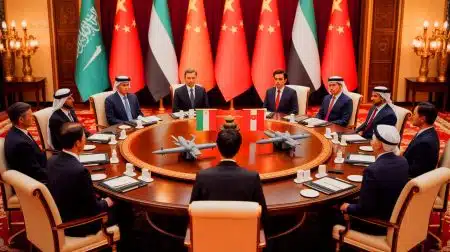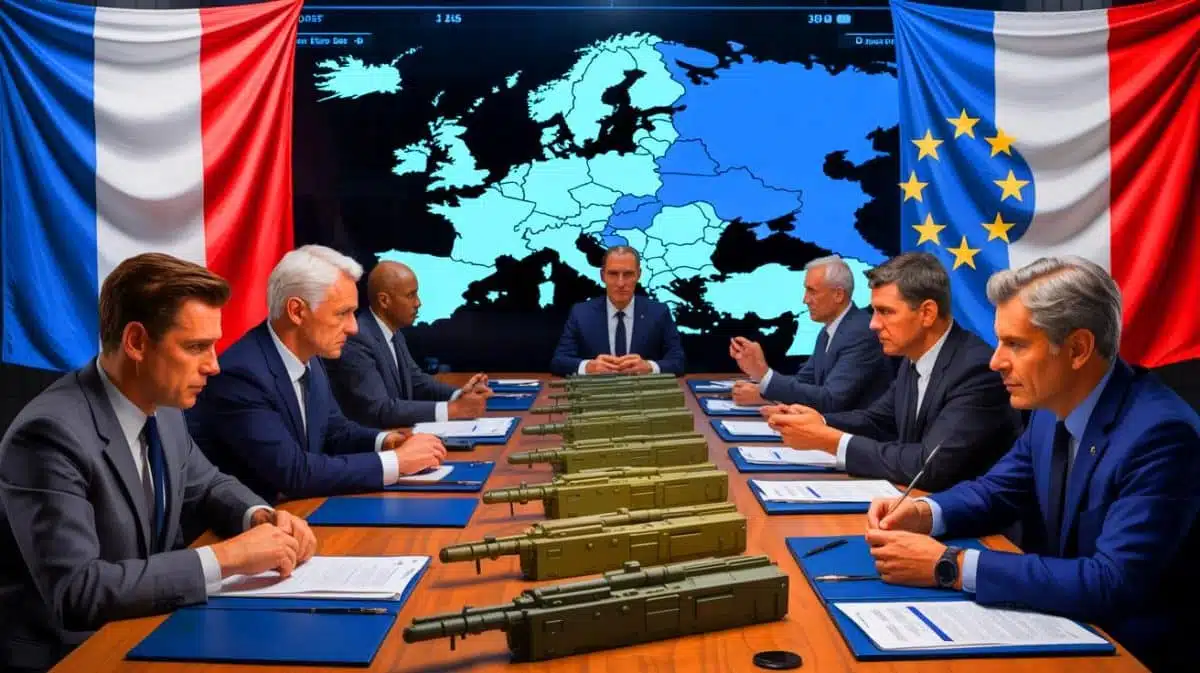| IN A NUTSHELL |
|
In recent developments within the European defense sector, France stands firm against proposed changes that would alter how arms exports are regulated across Europe. This decision highlights the complexities involved in balancing national security interests with broader European integration efforts. As tensions rise over defense autonomy and international oversight, the consequences of these regulatory shifts could reshape the future of military collaboration on the continent. Understanding the intricacies of this debate is crucial for stakeholders and policymakers alike.
The Importance of France’s Position
France’s resistance to altering arms export regulations stems from its longstanding commitment to maintaining control over its defense industry. As a major player in the global arms market, France values its ability to oversee where its military products, including critical components like the CAESAR self-propelled howitzer, are ultimately deployed. This artillery system, known for its mobility and effectiveness, serves as a key asset in France’s defense arsenal. By retaining oversight, France ensures that its military technologies do not end up in the hands of hostile entities, safeguarding both its national security and international reputation.
Moreover, France’s stance underscores its dedication to preserving sovereignty in defense matters. The proposed regulatory changes would require member states to relinquish some control over arms export decisions to a centralized European authority. For France, this represents a significant concession, as it would effectively strip the country of its right to monitor the final destinations of its defense products. Such a shift could jeopardize France’s strategic interests and complicate its role in international security alliances.
Implications for the European Defense Market
The potential regulatory changes carry significant implications for the broader European defense market. Currently, each European nation maintains its own set of rules governing arms exports, tailored to its unique security needs and geopolitical considerations. By harmonizing these regulations, proponents argue that Europe could enhance its collective defense capabilities and streamline the process of military collaboration across borders. This could lead to increased efficiency and competitiveness in the global arms market.
However, critics contend that such harmonization may dilute individual nations’ control over their defense policies. Smaller countries, in particular, may find themselves pressured to comply with decisions that favor larger member states, potentially leading to imbalances in military power within the EU. Additionally, centralizing arms export oversight could introduce bureaucratic delays and complicate rapid response efforts in times of crisis. These concerns highlight the delicate balance between fostering European unity and respecting national sovereignty.
The Role of Trust and Accountability
Trust and accountability are pivotal elements of the ongoing debate over arms export regulations. Proponents of centralized oversight emphasize the importance of establishing a transparent framework that ensures all member states adhere to common ethical standards. By fostering trust among European nations, advocates believe that the EU can strengthen its collective defense posture and present a united front on the global stage.
Conversely, opponents argue that centralized control could erode trust by removing decision-making power from individual nations. They assert that member states are best positioned to assess their own security needs and manage the risks associated with arms exports. By maintaining national oversight, countries can ensure accountability to their citizens and uphold their unique defense priorities. This ongoing tension between collective security and individual accountability will likely shape the future of European defense policy.
The Future of European Defense Policy
As the debate over arms export regulations unfolds, the future of European defense policy remains uncertain. France’s firm stance against regulatory changes signals a broader reluctance among some member states to cede control over defense matters. The outcome of this debate could redefine how Europe approaches military collaboration and security integration in the coming years.
Ultimately, the resolution of this issue will hinge on the ability of European leaders to balance national sovereignty with the benefits of collective security. As discussions continue, the EU must navigate complex geopolitical landscapes and address the diverse concerns of its member states. How can Europe effectively harmonize its defense policies while respecting the unique security needs of each nation? This question will be central to shaping the continent’s approach to defense and security in the 21st century.
Did you like it? 4.5/5 (22)







Why does France always have to be the rebel? 🤔
I think France has a point. National sovereignty shouldn’t be compromised.
Isn’t harmonizing rules supposed to make things easier? Why the fuss?
Thank you for highlighting France’s perspective. It’s important to hear all sides. 🇫🇷
Typical France, always drawing lines! 😂